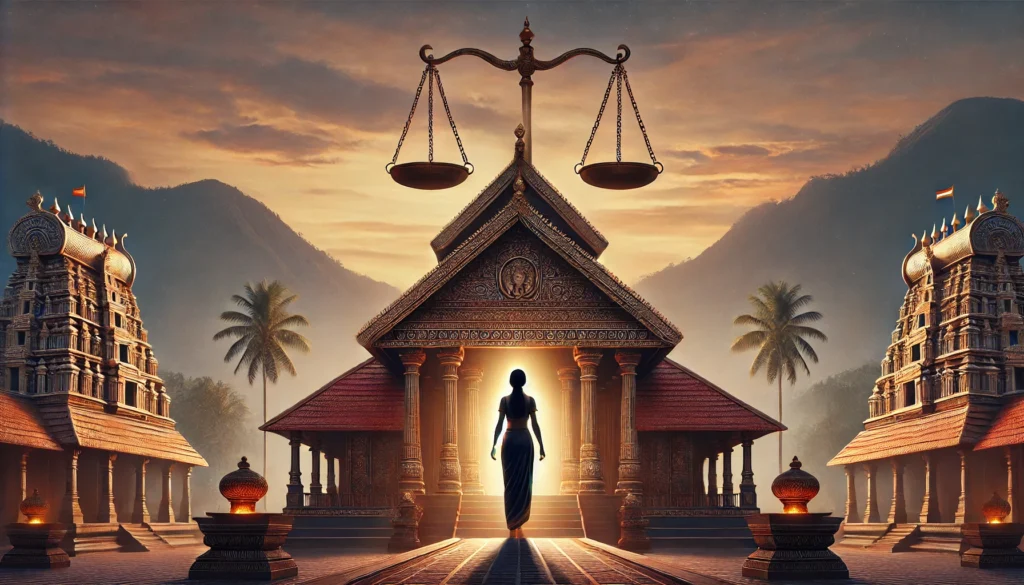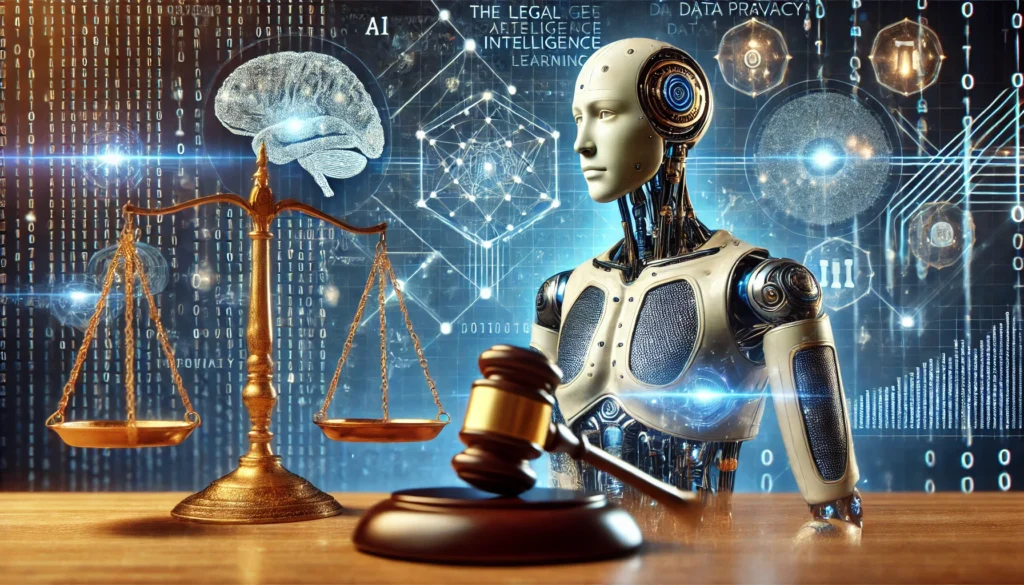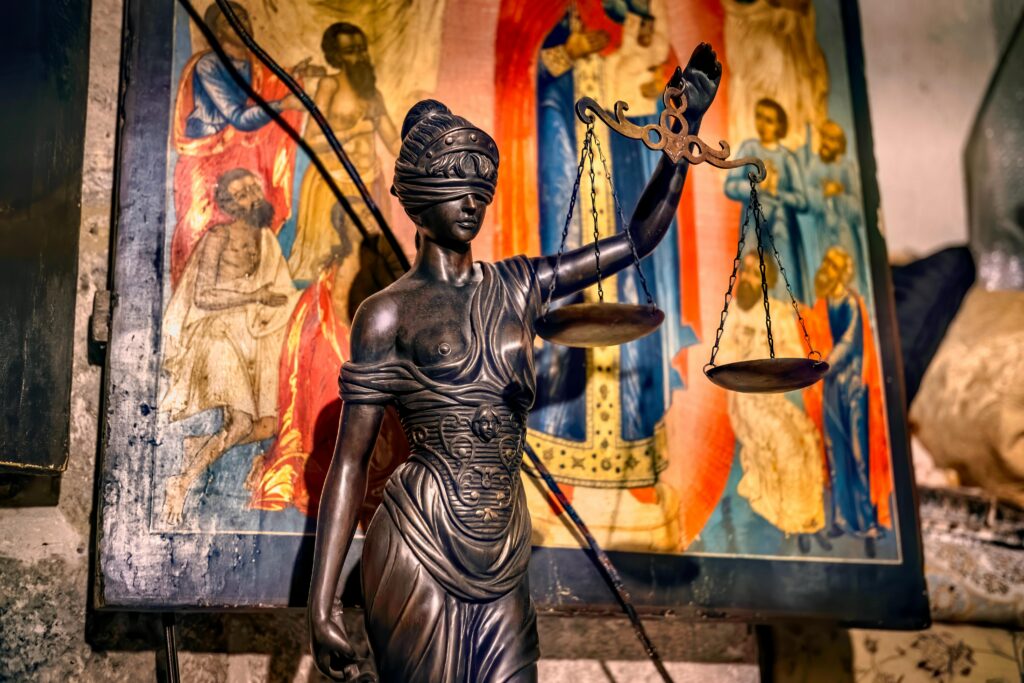Published On: September 04th 2025
Authored By: Advocate Geeta Rani
Introduction
Maintenance is a topic which comes across as simple and almost everyone is acquainted with these terms but still some questions arise in dealing with this topic e.g In Hindu law Whether hindu husband can also claim maintenance? Is it an absolute obligation upon a male Hindu to maintain his wife, children or aged parents or any exception exists related to this. This article is all about the main provisions related with maintenance, where it is clarified, as in accordance with these codified provisions of Hindu Law, how it becomes possible to make proper arrangements for those persons, who do not have sufficient means.
As is the case being a social animal, there are some obligations upon every person towards each other. A Hindu also has some duties and he is bound to those obligations as laid down in clear terms of Hindu sages, Maintenance is one of those duties.
According to Manu – wife, aged parents and infant child must be maintained even by doing a hundred misdeeds.
In Mitakshara school, Brihaspati said “A man may give what remains after the food and clothing of family: the giver or more (who leaves his family naked and unfed) may taste honey at first but afterwards find it poison”.
By virtue of Hindu law, maintenance is an imperative duty of a Hindu. The Apex Court in Kiran Jyot Maini v. Anish Pramod Patel (2024) holds the view that the intention behind the provision is not to punish the husband but to ensure a dignified life standard by granting her maintenance.
Meaning of maintenance
Maintenance is a right when a person is able to claim expenses related to basic needs which are necessary to live like a well being. Maintenance has been defined under Section 3(b) of Hindu Adoption and Maintenance Act 1956, which includes expenses related with food, clothing, residence, education and medical treatment.It also covers the reasonable expenses and incident for marriage of unmarried daughters which are reasonable expenses excluding dowry.
Hindu Marriage Act 1955
In general awareness, a wife has a right to claim maintenance from his husband and the wife is not bound to maintain his husband because from the ancient period it was prevalent as Dharma. But section 24 & 25 of Hindu Marriage Act 1955, entitled the husband to claim maintenance from his wife in certain situations.
Types of maintenance
Maintenance is categorized into two categories which are following
1.Pendente Lite:- Are those expenses which are related with court proceedings. These expenses are chargeable during the pendency of the court proceedings which is articulated as interim maintenance or temporary maintenance . It includes both personal maintenance and expenses of court proceedings .Parties can apply for interim maintenance for both at trial court as well as at the appellate court even if the opposite party is denying their relationship. Section 24 provides that either the husband or wife can claim pendente lite if either of the spouses has no income source or unable to earn. But if the complainant is capable of earning then she or he will not be permitted to claim maintenance. It is also stated in Section 144 of the Bharatiya Nagarik Suraksha Sanhita, 2023, (the previous code Criminal Procedure Code 1973 with under Section 125).
In the case of Mamta Jaiswal v/s Rajesh Jaiswal, the Court rejected the petition filed by the wife who was in the service and also qualified with M.Ed and M.Sc. Hence she was capable enough to earn her livelihood and live a dignified life. So she is not entitled to maintenance.
Under this Act, After considering the income of husband and wife, the Court can order a reasonable amount to the respondent and the respondent has to pay expenses of proceedings and monthly expenses during the proceedings. The second wife is also entitled to claim maintenance under this section if she was not aware about the first living wife of the respondent not otherwise.
2. Permanent Maintenance and Alimony:- It also includes residence in itself. Court may issue an order for residence for the wife in the matrimonial home. Section 25 put into words that after the judicial proceedings, according to the order of court, either it is judicial separation or divorce, respondent has to pay maintenance, a gross sum or monthly or periodically for a term not exceeding the
life of the applicant after taking into consideration the income of both parties. In Amit Verma v. Shilpa Verma (2022), Honourable Court held that a working wife is entitled to claim maintenance if her earnings are insufficient to maintain a dignified lifestyle by the same taken to that in her marital home. The Court further emphasized that maintenance is not limited to basic expenses but includes the preservation of dignity and parity.
Alteration in order of maintenance
Court can alter order for maintenance in following cases –
- If there is change in the circumstances of either party at any time, ● If that party in whose favour and order has been made, has remarried, ● Wife not remained chaste,
- The husband has had sexual intercourse outside of the wedlock.
Can children claim maintenance under this Act?
Statutory provision of Hindu law expressed that children are entitled to claim maintenance under this Act. If both the parents are employed then both parents have an obligation to pay maintenance in proportion to their income. Section 26 empowered matrimonial court to decide and pass orders relating to custody, education and maintenance of children as following stages-
(a) Pending matrimonial proceedings,
(b) Permanent orders,
(c) Subsequent to the passing of the decree granting a petition.
In the case of Neha Tyagi vs. Lieutenant Colonel Deepak Tyagi (2021), the court held the view that children should not suffer, because of disputes between husband and wife and that the child has an undeniable right to live life in accordance with his father’s position. Father has to fulfil the responsibility to maintain his child till the child attained age of majority.
The Hindu Adoption and Maintenance Act 1956
Maintenance to wife:- According to Hindu culture husband and wife who were
solemnised as per Hindu rites and rituals have some rights and duties towards each other. It is an obligation upon a wife to live with her husband and perform all duties for the matrimonial home. On the other hand, it is an imperative duty of the husband to maintain his wife even if his financial condition is not fine.
Section 18 specifies that hindu wife has a right to be maintained by her husband during her lifetime.
A Even Hindu wife can live separately from her husband and can claim maintenance if:-
(a).He is guilty of desertion against her wish or without her consent to abandon her, without any reasonable reason.
(b). It is harmful or injurious for her to live with him because he treated her with cruelty(mental or physical) by him.
(c).He is suffering from leprosy, which is extremely severe in nature. (d). He has another wife, who is alive.
(e).He habitually resides with a concubine anywhere else or in the same house where she (wife) is residing.
(f). He converted his religion to another religion.
(g).If there is another reason which is justified to live separately from his husband. A Hindu wife loses the right to claim maintenance and to live separately from his husband if
- She is unchaste ,
- She Converts religion, because non hindu wives cannot claim maintenance under this Act.
- Chapter Ⅱ of Mitakshara of Hindu Law, formulated that wife and children will be maintained out of share of husband , even in case a husband is barred to inherit his ancestral property, due to reason of his own incapacity.
Hon’ble High Court of Punjab and Haryana in Avtar Singh vs. Jasbir Singh, (2014), found a drawback , when the husband was of unsound mind, the daughter in law did not have any means to maintain herself in poor condition. Union Ministry of Law and Justice and Law Commission of India took requisite steps by sending a copy of order to Parliament,for adaptation of new provision in the Act, to ensure maintenance rights of Hindu daughters-in-law whenever such a situation arises.
The right of the wife to be supported by his husband for expenses of her basic needs during her lifetime, flows from the Section 18 of Maintenance Under The Hindu Adoptions and Maintenance Act, 1956 The Law Commission of India, their Report No. 252, with title of “Right of the Hindu Wife to Maintenance: A relook at Section 18 of the Hindu Adoptions and Maintenance Act, 1956″, furnished recommendation in reference to introduction of sub-section 4 within Section 18 with intention to codify the right of maintenance of a Hindu woman, out of ancestral property of his husband to the extent of his portion, if husband is unfit to sustain her for necessities because of following reasons :-
- Physical disability,
- Mental illness,
- Withdrawal from the society
- Renunciation of the world
- Any other reasons,
In such an instance, the wife comes within the purview of dependent, So she has the right to claim maintenance from father in law as a dependent as provided under Section 19 of the Act.
Maintenance of widowed daughter in law
If Karta inherited the joint family property then he had to maintain a widowed daughter in law after the death of his husband. After the death of Karta who will inherit that specific property, the obligation to maintain the daughter in law will be shifted upon him. Section 19 construes that she has a right to be maintained by father in law if she is not able to maintain herself with her own earning or she has no property of her own or from the estate of-
- Husband or
- Her mother or
- Her father or
- Her son or
- Her Daughter.
The Allahabad High Court in Shree Rajpati v. Smt. Bhuri Devi(2024) observed that the fact, a widowed daughter-in-law living with her parents will not be taken as she separated herself from matrimonial home and not to be precluded to seek maintenance from her father in law
She will be disqualified to claim maintenance from his father in law if she is remarried or the father in law does not acquire any part from the coparcenary property or he is holding only self acquired property .In 2018, in case of panchkula, High court of Punjab & Haryana court, court declares that Hindu daughter in law has no right on the self acquired property of father in law.
Maintenance of children and aged parents
Because of the parent-child relationship children and aged parents have some duties toward each other. Section 20 stipulates that a child either legitimate or illegitimate has the right to be maintained by his or her father or mother, until the child is minor.
The Honourable Supreme Court, in the landmark case of Apurva Bhuvanbabu Mandal v. Dolly & Ors. (2024) held that, between maintenance rights of a wife and children and creditors’ claims, the husband has to give preference to payments of maintenance rights over others’ rights.
When parents get old or infirm a Hindu is bound to maintain their parents. It is not an absolute duty upon children. In case parents have no income source or they are not able to earn, then children will be liable to maintain their parents as mentioned in Section 20 not otherwise.
In the case of Mohinder Singh v/s Ravneet kaur (2007) Punjab & Haryana HC it was held that the word is used ‘or’ between mother and father is interpreted as ‘and’ so that child can claim maintenance from both parents who are capable of maintaining the child.
- In this section ‘parent’ also includes childless stepmother but excluded childless stepfather.
Dependents?
- The term dependent was never used in Hindu law prior to this Act. When this Act came into existence it created new rights for some persons, called Dependents. The term dependent needs to clarify before recognizing their rights. .Dependents are relatives of the deceased according to Section 21 which includes-
(a)His or her father,
(b)His or her mother,
(c)His widow, in case she remains unmarried,
(d)His or her minor son either legitimate or illegitimate
(e)His or her minor daughter either legitimate or illegitimate
(f)Widowed daughter in case she unable to maintain from the estate of her Husband or Either Son or daughter or Either father in law or father
(g)Son of widow
(h)Grandson of widow
(i)Son’s unmarried daughter
(j) Unmarried daughter of grandson
(k)Son’s Son’s minor son.
Maintenance to Dependents
The rights of the dependents exist not against the heirs personally but against the property. It is a compulsion, subject to certain conditions upon a Hindu to maintain the dependents of the deceased, out of the estate inherited by him from property of the deceased.
It is possible that the same person can be an heir and dependant. So this section clarified this thing, Hindu who has acquired no share from the property, he or she can claim maintenance from those who take the estate. But if he or she has obtained any share in the estate of an intestate succession, then he or she will lose the right to claim maintenance of the person.The person who obtains the estate, in proportion to the value of the share or the part of the estate, is bound to maintain as in accordance with the share acquired by him or her. A person who is himself or herself a dependent is not bound to contribute for the maintenance of others. If there is liability to contribute, it would be lesser than that of what is provided to her in maintenance.
Amount or Quantum of maintenance
Before the existence of these laws, questions in reference to maintenance raised and unequivocal rules dealing with questions, had been laid down. The Privy council in Ekradeshwari v Homeshwar declared that “Maintenance depends upon gathering together of all the facts of the situation, the amount of free estate, the past life of the married parties and the families, necessities and rights of the members, reasonable changes in circumstances in future, lifestyle etc.” With the virtue of Section 23 of Hindu Adoption and Maintenance Act 1956, While determining the amount of maintenance of wife, children or aged or infirmparents, Court will speculate some factors which are as following-
- The position and status of the parties,
- The reasonable wants of the claimant,
- If the claimant is living separately from his husband due to reasonable reasons.
- The value of claimant’s separate earning or income or from any other source, ● The number of persons entitled to maintenance.
Court will take into account following points while settling the amount of maintenance of a dependant–
- Net value of the estate of the deceased for the payment of his debts, ● If anything made under a will of the deceased in respect of the dependant, ● The degree of the relationship b/w the two,
- Reasonable wants of the dependant,
- Past relationship of the deceased and dependant,
- The value of the property of the dependant and any income comes out of such property or any other source,
- The number of Dependents claiming maintenance under this Act.
In the case of Kalyan Dey Chowdhury v. Rita Dey Chowdhury Nee Nandy (2017), the Hon’ble Supreme Court holds the view that to grant 25% of the husband’s net salary as maintenance is reasonable and just with the purview of law.
A Bench of Justices Indu Malhotra and R. Subhash Reddy promulgated principles to determine quantum of matrimonial maintenance in reference to conjugal proceedings Rajnish v Neha (2020) . Hence it is mandated to keep in account following factors to pass appropriate maintenance orders:-
1) Status of the parties,
2) Necessities of the applicant,
3) Earning and estate of the respondent,
4) liabilities and pecuniary responsibilities of the claimant,
5) Stage of life and position of the parties in the occupation,
6) Household settlement,
7) Maintenance of minor children,
8) Illness or inability.
Recently, the Hon’ble Supreme Court in Kiran Jyot Maini vs Anish Pramod Patel (2024) The Apex Court recapitulated the case Rajnesh v. Neha (2020) for
courts for assessment of maintenance, with implementation of those eight guidelines declared in the case.
Section 24 describes that non hindu are not permitted to claim maintenance under this Act. If any hindu converts his religion to another religion then she or he will lose his right.
Alteration of the amount of maintenance, after decree of the court?
Legislative intent behind Section 25 is to alter the amount decided by the court or agreement as according to the change in the circumstances of parties e.g. change in social and financial circumstances.
Conclusion
So we can conclude that hindu law is based on our natural justice, customs and equity justice. Which treats male & female equally and pay attention to welfare of abandoned or refused categories of society or to achieve the target of legislature to satisfy necessary expenses of those Hindus who are not capable of earning their livelihood and other basic necessities which are important for a dignified life. Statute enacted to protect the abandoned persons from financial and mental anguish by codifying these reasonable provisions otherwise some social beings’s lives could be similar to mere animal existence. However, it is also necessary that implementation of these laws must be fair to achieve true accomplishment of the intention of the legislature.
Frequently Asked Questions.
- Can a Hindu husband also claim maintenance from his wife?
Yes. Under Sections 24 and 25 of the Hindu Marriage Act, 1955, either spouse can claim maintenance if they do not have sufficient independent income for their support unless the other spouse has the means to maintain them . - Is it an absolute duty of a Hindu male to maintain his wife, children, and parents?
Generally, yes. Hindu law imposes a duty on a man to maintain his wife, minor children, and aged or infirm parents. However, there are exceptions, when a wife loses the right to maintenance if she is unchaste or converts to another religion, and children need not maintain parents who are capable of earning. - What is the difference between interim (pendente lite) maintenance and permanent maintenance?
- Interim/Pendente Lite Maintenance (Section 24, HMA): Temporary maintenance granted during the pendency of court proceedings which covers personal expenses and litigation costs.
- Permanent Maintenance (Section 25, HMA): It is granted after a judicial decision which is payable as a lump sum or periodically for life or a fixed term.
- Can children claim maintenance from both parents?
Yes. Under Section 26 of the Hindu Marriage Act and Section 20 of the Hindu Adoptions and Maintenance Act, both parents are obliged to maintain their minor children in proportion to their incomes. The Punjab & Haryana High Court in Mohinder Singh v. Ravneet Kaur interpreted “or” between mother and father as “and” to hold both responsible. - Are widowed daughters-in-law entitled to maintenance from their father-in-law?
Yes, under Section 19 of the Hindu Adoptions and Maintenance Act, 1956, a widowed daughter-in-law can claim maintenance from her father-in-law if she cannot maintain herself and he has inherited ancestral/coparcenary property from her husband. She cannot claim from self-acquired property, and the right ceases if she remarries.
References
- Paras Diwan, Modern Hindu Law 24th Edition (Scribd 2024), https://www.scribd.com/document/488830595/Modern-Hindu-Law-by-Dr-Pa ras-Diwan-24th-Edition.
- Maintenance Under Hindu Law (PW Live 2024),https://www.pw.live/exams/judiciary/maintenance-under-hindu-law/.
- Neha Tyagi v. Lt. Col. Deepak Tyagi, LL 2021 SC 700 (Live Law), https://www.livelaw.in/pdf_upload/neha-tyagi-vs-lt-col-deepak-tyagi-ll-2021 -sc-700-405143.pdf.
- The Code of Criminal Procedure, 1973 (India Code 2024), https://www.indiacode.nic.in/bitstream/123456789/15272/1/the_code_of_criminal_procedure,_1973.pdf.\
- Hindu Adoptions and Maintenance Act, 1956 (India Code 2024), https://www.indiacode.nic.in/bitstream/123456789/1638/1/AA195678.pdf.
- Apurva Bhuvanbabu Mandal v. Dolly & Ors., LL 2024 SC (Live Law), https://www.livelaw.in/pdf_upload/pdf_upload-383473.pdf.
- Rajnesh v. Neha, LL 2020 SC (Live Law), https://www.livelaw.in/pdf_upload/rajnish-v-neha-2020.
- Ministry of Home Affairs Notification (2024), https://www.mha.gov.in/sites/default/files/2024-04/250884_2_english_01042024.pdf.
- Shree Rajpati v. Smt. Bhuri Devi, LL 2024 All HC (CaseMine), https://www.casemine.com/judgement/in/560978fce4b014971133c03e.
- Indian Kanoon (2024), https://indiankanoon.org/doc/1037298/.




